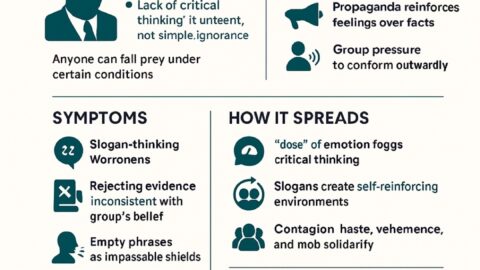Distorted Viewpoints, Emotional Affairs & Divorce: When Self-Deception Destroys Truth and Families
Introduction
Divorce is rarely clean. Often, it’s not about just abuse, neglect, or betrayal — but about distorted personal paradigms, unchecked emotions, and self-centered justifications.
In today’s culture, where feelings are worshipped as truth, people routinely use emotional validation as justification for abandoning commitment — especially when someone else new enters the picture and becomes their emotional escape.
Combine that with Covey’s “life centers,” Arbinger’s “self-deception” lens, and the psychological blindness of being “inside the box” — and you have the perfect recipe for rationalized betrayal, misjudgment, and long-term regret.
The Distorted Personal Viewpoint: Feelings as Truth
When someone begins an emotional affair, they usually rewrite the story in their head to justify what they’re doing:
- “I’ve never felt this seen before.”
- “My spouse never really understood me anyway.”
- “This person makes me feel alive again.”
These narratives aren’t facts — they’re emotional distortions, crafted in a moment of vulnerability and idealization.
Instead of looking at reality with wisdom, they see the situation through the lens of how they feel — often exaggerating the flaws of their partner and romanticizing the emotional high from someone new.
This is where Covey’s paradigms come in.
Stephen Covey’s Paradigms & Life Centers: Where Is the Person Anchored?
Stephen Covey taught that your paradigm is the lens through which you see the world — and that lens determines how you interpret everything.
If someone is relationship-centered, they’ll build their entire emotional and mental world around another person. When that center gets shaken — by conflict, boredom, unmet expectations — they spiral.
If someone is self-centered, their personal fulfillment becomes the ultimate moral compass. They’ll say things like:
- “I deserve to be happy.”
- “I can’t be in a relationship where I don’t feel loved.”
This is where life begins to crumble — because their foundation isn’t principle-centered. It’s emotional. And emotions shift like sand.
Covey taught that only principle-centered people — anchored in values like honesty, loyalty, patience, humility, and responsibility — can see clearly.
Without that, people rewrite truth to fit their impulses.
Inside-the-Box Thinking: Arbinger’s Lens of Self-Deception
The Arbinger Institute describes “inside-the-box” thinking as self-deception — when we stop seeing others as people and start seeing them as objects that either support or threaten our self-image.
In the context of divorce:
- A spouse becomes a villain, a burden, a mistake.
- The emotional affair partner becomes a savior or escape.
- One’s own role is minimized or denied completely.
Inside the box, the individual believes:
- “I’m justified in my actions.”
- “They deserve this.”
- “I had no choice.”
But outside the box — in clarity, humility, and truth — they might see:
- Their own selfishness.
- Their lack of patience, empathy, or commitment.
- Their emotional immaturity and unwillingness to face discomfort.
Inside-the-box people inflame the narrative to escape responsibility. Outside-the-box people face it, own it, and grow.
The Emotional Affair: False Intimacy, False Clarity
Emotional affairs are seductive precisely because they offer everything that requires nothing:
- Validation without accountability.
- Intimacy without sacrifice.
- Connection without history.
When a person is dissatisfied in their marriage and starts confiding in someone new — often someone they feel “understands” them — they’re no longer just expressing frustration. They’re outsourcing emotional intimacy, which belongs in their marriage.
That affair becomes a lens through which they now judge their spouse:
- “She never listens to me” (because the new person listens perfectly).
- “We’ve grown apart” (because they now have fresh infatuation clouding judgment).
- “He never makes me feel special” (because they’re comparing years of real life to a few weeks of emotional fantasy).
This is dangerous — and dishonest. It creates a false moral clarity for divorce, driven not by truth but by escapism.
When Divorce Becomes a Psyop of Selfishness
In this emotional fog, the person:
- Misuses support networks through idiot compassion.
- Validates distorted thoughts through biased narratives.
- Projects blame entirely on the spouse.
- Believes they are “following their heart” — when they’re actually abandoning responsibility.
They may even recruit friends and family to believe the same narrative. The emotional affair becomes justified. The spouse is demonized. The kids are “resilient” and will “understand someday.”
This is modern divorce: not rooted in truth, but in emotional deception, justified by internal distortion and external reinforcement.
The Tragedy: Broken Families, Generational Impact, Lost Souls
What starts as a search for personal fulfillment often ends in generational destruction:
- Broken homes.
- Traumatized children.
- Lost trust.
- Generational wealth transferred to lawyers, banks, or commercial entities.
- A soul eroded by lies it told itself.
As you said earlier: “The soul, families, nation, and God have been systematically destroyed.”
Because truth was abandoned for feelings. Loyalty was abandoned for novelty. And commitment was rebranded as a cage.
Final Thoughts: Come Back to Truth, Character, and Consciousness
If people were to pause — truly pause — and:
- Step outside the box,
- Examine their paradigms,
- Anchor themselves in timeless principles,
- Seek objective wisdom instead of emotional validation,
They would likely see that their dissatisfaction is not always a partner problem — it’s a character problem, a self-deception problem, a paradigm problem.
And instead of breaking apart their families and souls, they might choose to grow up, face the truth, and repair what matters most.
Because not every divorce is necessary.
But every truth is.






